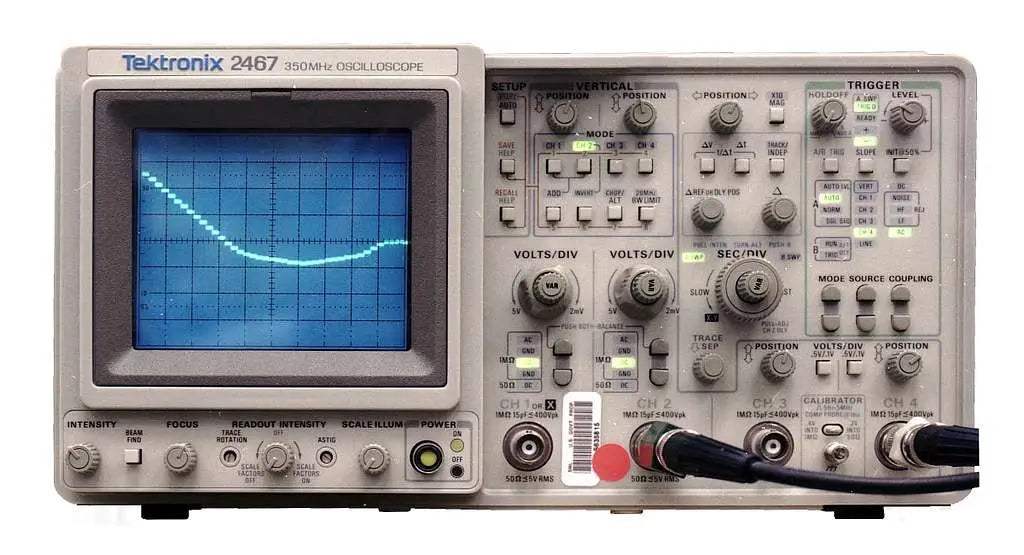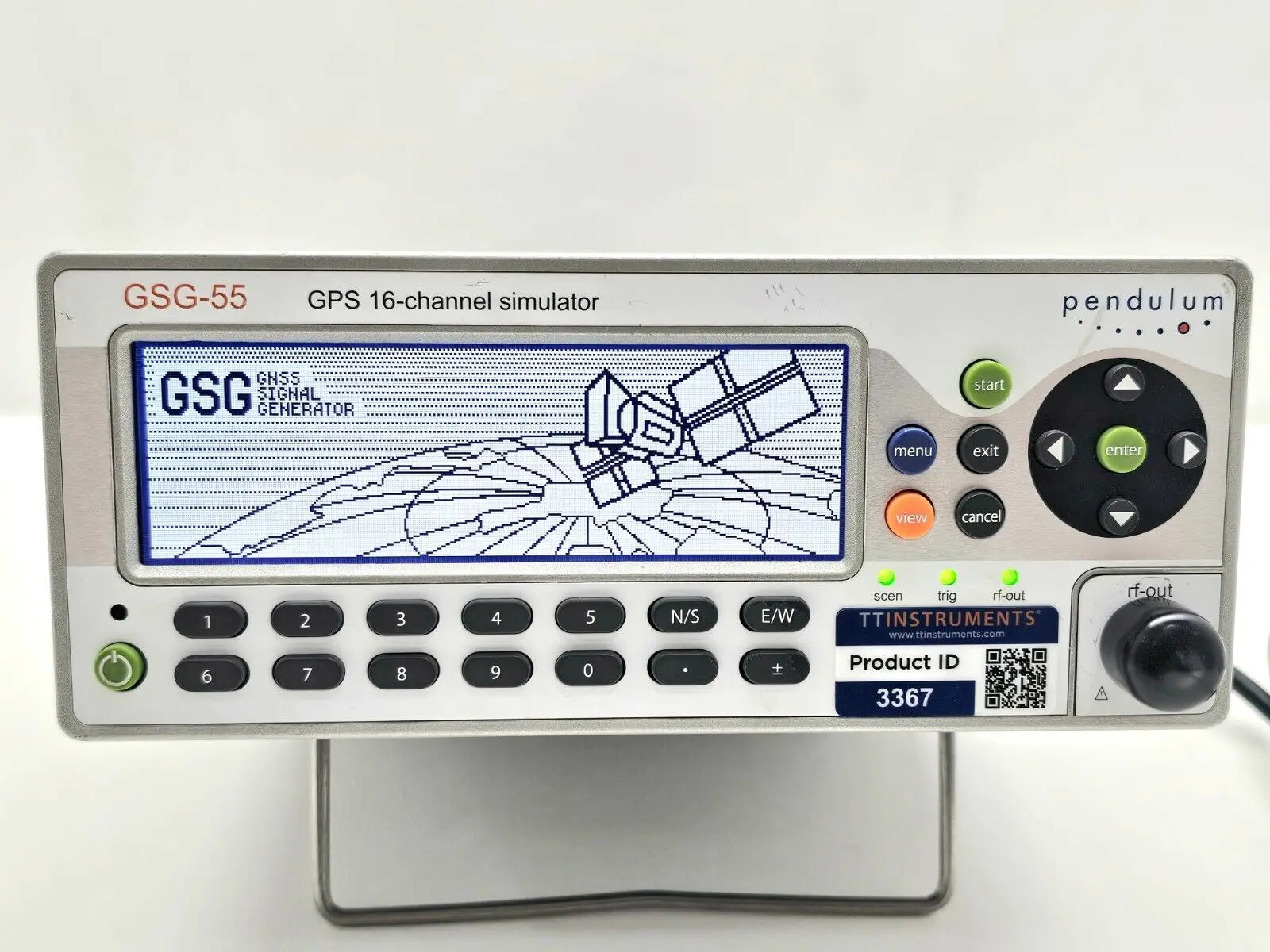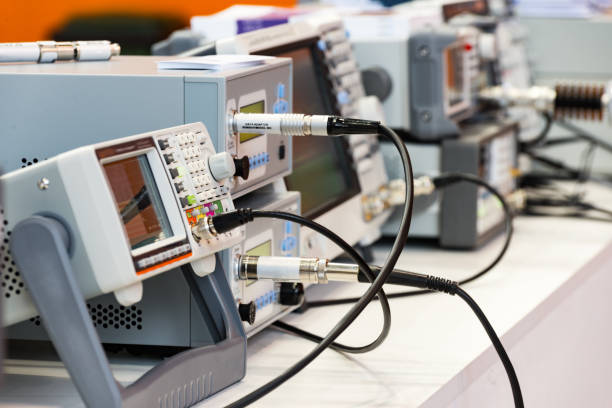
Lab Test Equipment Essentials: Setting Up a Cost-Effective Laboratory
Whether you're building a new electronics lab, upgrading an R&D space, or equipping a facility for educational or industrial testing, choosing the right test equipment is critical. But outfitting a lab doesn’t have to mean overspending, especially if you know what instruments to prioritize and when it makes sense to buy used or refurbished gear.
In this guide, we outline the essential lab instruments, explain their roles, and provide tips on setting up a flexible, future-proof, and cost-effective lab using quality tools available at TT Instruments.
Step 1: Understand Your Lab’s Purpose
Before buying anything, define your lab’s primary functions. Are you developing electronic circuits? Testing wireless communication systems? Performing environmental stress tests? Your goals will determine your equipment needs.
Common lab types include:
-
General electronics labs
-
RF and microwave development labs
-
Academic or teaching labs
-
Environmental and compliance testing labs
Core Lab Instruments You’ll Likely Need
Oscilloscopes & Accessories
A staple of nearly any electronics lab, oscilloscopes let you visualize electrical signals in real time. They're essential for debugging, timing analysis, and waveform verification. Depending on your needs, you can choose from basic 2-channel scopes to high-bandwidth, mixed-signal models.
Explore: Oscilloscopes & Accessories
Waveform Generators
Also called function or signal generators, these devices produce standard or custom waveforms used to stimulate circuits during testing and development.
Explore: Waveform Generators
Multimeters & Clamp Meters
Multimeters are essential for measuring voltage, current, resistance, and more. For higher-current applications or power measurements, clamp meters add versatility.
Explore: Multimeters & Clamp Meters
Current Clamps
Used to measure current without breaking the circuit—especially useful for troubleshooting or for use with oscilloscopes and multimeters.
Explore: Current Clamps
Power Supplies
A reliable DC power supply is vital for powering devices under test. Consider programmable models if you need automated testing or multiple outputs.
Explore: Power Supplies
Analysers, Recorders & Counters
These include frequency counters, spectrum analyzers, and data loggers helpful for measuring signal characteristics, timing precision, and long-term performance.
Explore: Analysers, Recorders & Counters
Multifunction & Appliance Testers
Ideal for safety and compliance checks, especially when testing finished devices or consumer appliances.
Explore: Multifunction & Appliance Testers
Accessories / Misc
Don’t overlook probes, cables, fixtures, and other accessories, they can make or break your workflow. Investing in quality accessories improves accuracy and safety.
Explore: Accessories / Misc
Step 2: Start with the Essentials
For most general-purpose labs, here’s a basic starting kit:
| Equipment | Purpose |
|---|---|
| Digital Oscilloscope | Signal visualization and timing |
| Function Generator | Signal stimulation |
| Multimeter | Basic electrical measurement |
| Power Supply | Controlled power source |
| Soldering Station | Circuit prototyping and rework |
| Basic Tools | Tweezers, clamps, wire strippers, etc. |
This setup will support prototyping, validation, and troubleshooting of most analog and digital circuits.
Step 3: Scale with Advanced Needs
As your lab grows or becomes more specialized, you may need to add:
-
Environmental Chambers – For temperature, humidity, and vibration testing.
-
High-speed oscilloscopes – For digital design, RF, or mixed-signal systems.
-
Network analyzers or spectrum analyzers – If you move into RF testing.
-
Automated test equipment (ATE) – For production line or high-volume testing.
Consider modular platforms for scalability and lab automation tools for repeatable testing and data capture.
Step 4: Be Smart with Your Budget
Test equipment can be expensive—especially at the high end. Here are some tips to stretch your budget:
-
Buy pre-owned or calibrated used equipment. TT Instruments offers professionally tested lab gear at reduced cost.
-
Prioritize equipment by usage frequency. Get quality oscilloscopes and multimeters first; you can upgrade or expand later.
-
Choose modular or expandable gear. It future-proofs your investment.
-
Buy compatible accessories from the start. It avoids rework and improves test accuracy.
Setting up a functional, cost-effective laboratory doesn’t require overspending—but it does require strategic planning. Focus first on the core tools that match your lab’s mission, then scale with advanced equipment as your needs grow. Whether you're starting small or building a high-end testing facility, reliable instruments will always deliver long-term value.
At TT Instruments, we provide a wide range of Laboratory test equipment—new and pre-owned—including oscilloscopes, power supplies, waveform generators, analyzers, and essential accessories. Everything is professionally tested, and we’re here to help you build your lab with confidence.
Visit our Laboratory section to browse instruments for your setup today.


